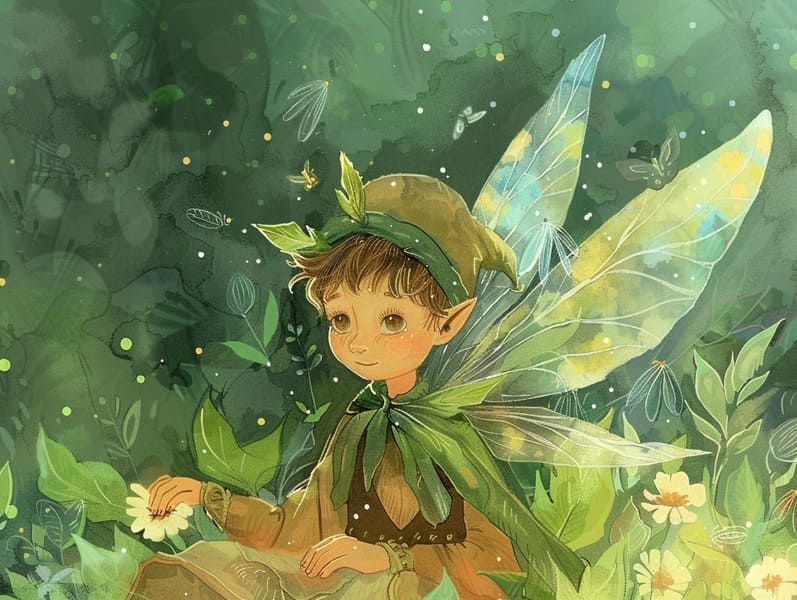Understanding the Charm of Evening Fairy Tales: Building Beloved Moments with Your Children
Understanding the Charm of Evening Fairy Tales: Building Beloved Moments with Your Children
Blog Article

Nighttime is a treasured time for adults and their kids. It’s a opportunity to calm down, get cozy, and revel in the magic of bedtime narratives.
For generations, evening stories for little ones have been a prized legacy, offering more than just a way to nod off. They provide an prospect for closeness, discovery, and stimulating imagination.
The Value of Bedtime Stories
Nightly tales for children go beyond a way to conclude the day. They play a significant role in a child’s evolution and in reinforcing the family bond. Here’s why they are beneficial:
1. Quality Time: Bedtime reading fosters a special time of affection between parents and children. It’s a moment of attachment that helps children feel cherished and reassured.
2. Language Acquisition: Experiencing stories helps children develop their verbal abilities. They acquire new phrases, understand grammar, and boost their understanding and grasping abilities.
3. Creative Thinking: Nightly stories usher them to dreamy worlds, encouraging inventiveness. They visualize characters, settings, and adventures, which stimulates their inventiveness.
4. Emotional Development: Stories for little ones often present characters facing issues and feelings. These accounts help kids understand and manage their own moods, promoting emotional growth.
5. Cognitive Skills: Following a story helps children develop attention span, retention, and problem-solving skills. They develop to follow tales, remember aspects, and project conclusions.
Integrating Stories into Night Routine
Starting a bedtime custom that has narrating bedtime stories is simple and gratifying. Here’s how to develop a important part of your evening routine:
1. Choose a Comfortable Spot: Select a cozy place where you and your child can snuggle up without distractions. A peaceful bed or a relaxing reading nook works great.
2. Set a Consistent Time: Set a set time each night for storytime. Routine helps children know what to expect and makes the practice easier to follow.
3. Select Age-Appropriate Stories: Pick tales that are tailored to your child’s developmental stage. Younger children might like easy books with basic stories, while more mature kids may enjoy novels with more engaging plots.
4. Bring the Story to Life: Make the tale become real by employing different voices and accents, adding noises, and encouraging your child to participate. Ask points about the story to hold their attention.
5. Set a Relaxing Mood: Adjust the lights, use whispers, and create a calming environment to help click here your child calm down.
Best Places for Bedtime Stories
There are countless options where you can find excellent bedtime stories for children. Here are some places to look at:
1. Books for Children: Check out your nearby library or bookstore to find a large selection of bedtime stories for kids. Checking out the shelves together can be a fun activity that also lets children to find stories that they enjoy.
2. Internet Resources: There are many websites that offer free bedtime stories. Sites like Storynory provide a variety of short stories for kids that you can access. These platforms are great for finding new and assorted stories without paying.
3. Audiobooks and Apps: For nights when you’re too tired to read, look into audiobooks or storytelling apps. These can provide a gentle reading to read your child a story, ensuring they still get their bedtime story fix. Apps often offer interactive parts that can keep kids interested further.
4. Tailored Stories: Create your own stories fitting your child’s hobbies. Personalized stories can be especially engaging and meaningful. You can engage your child in the development process, making them a part of the adventure.
Positive Aspects of Short Stories
Short bedtime stories are highly helpful for bedtime. They provide all the good points of longer stories but are more compact, making them perfect for relaxing before sleep. Here’s why short stories are a ideal choice:
1. Easy to Follow: Brief tales are direct and understandable for kids, even after a long day. They can readily grasp the story and enjoy the story without becoming distracted.
2. Fast Engagement: Short tales readily engage children, keeping their focus and fascination. This makes them suitable for keeping bedtime routines effective yet enjoyable.
3. Many Choices: Quick stories give for variety in your bedtime narrative. You can pick a different story each night, keeping the practice fresh and exciting for your child.
4. Time Efficiency: For busy parents, concise narratives are a fast way to make sure children still get their nightly dose of storytelling. They fit well into a crowded schedule while still offering the full plusses of a bedtime story.
Why "Read Me a Story" is Magic
The simple phrase, “Can you read to me?” can reveal a world of magic for children. Agreeing to this request not only answers a child’s requirement for attention and engagement but also develops lasting times. Here’s why it’s special:
1. Relationship: Sharing stories to your child creates a deep emotional connection. It’s a time for togetherness, sharing, and bonding.
2. Heritage: Starting a bedtime story routine creates a beloved tradition that children expect every night. It’s a routine that can be continued through generations.
3. Growing Together: As you read aloud, you’ll observe your child’s maturation and growth. Their responses, reactions, and understanding of the stories advance, offering insights into their developing minds.
4. Comfort Zone: Bedtime stories provide a safe space for children to understand emotions, face fears, and find comfort in the recognizable presence of a parent.
End Thoughts
Nightly tales for children are a essential tool for developing a child’s advancement and building unforgettable memories of togetherness.